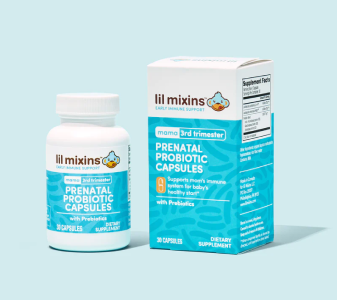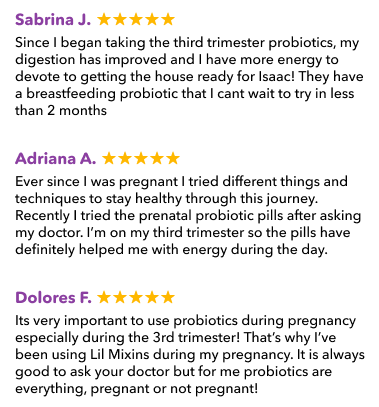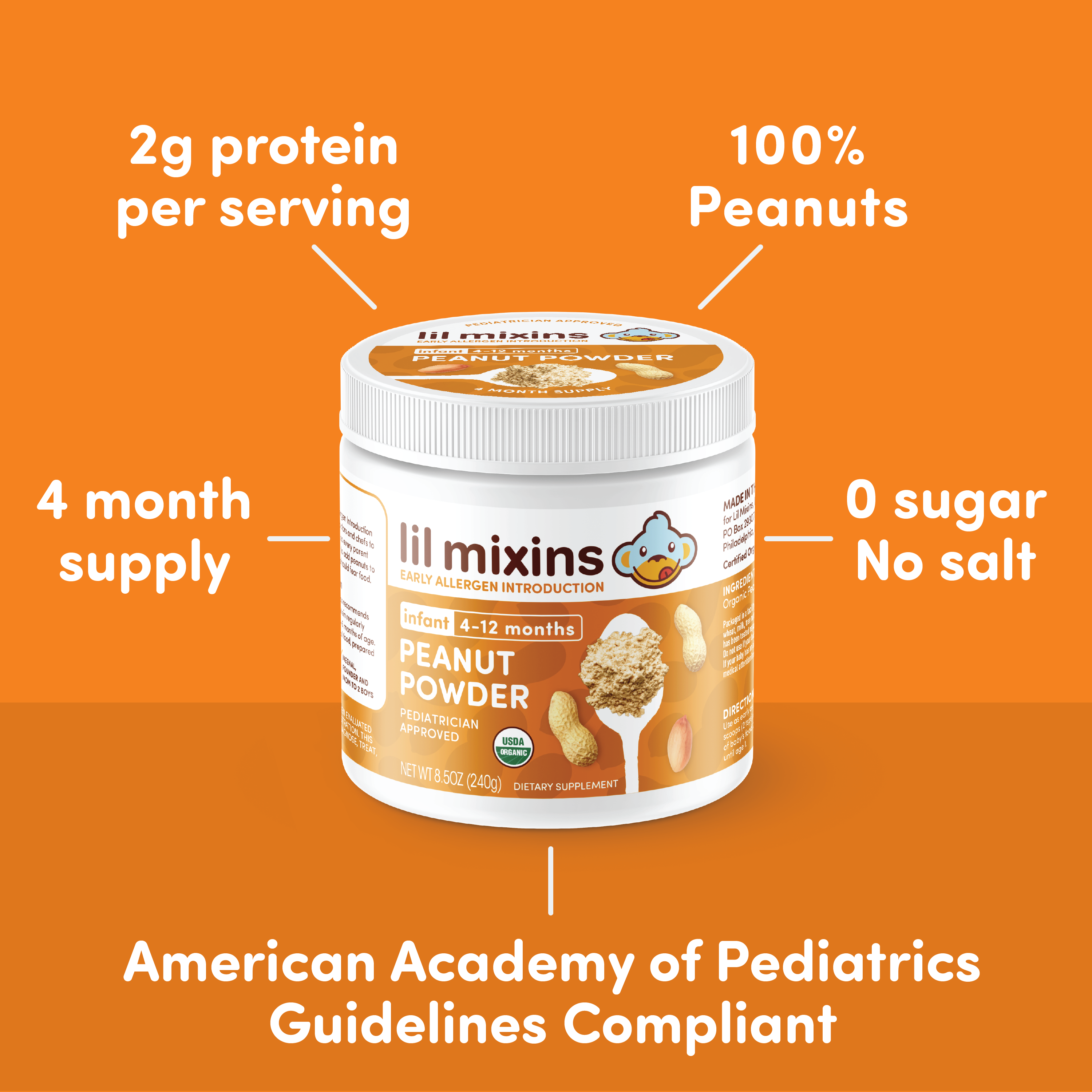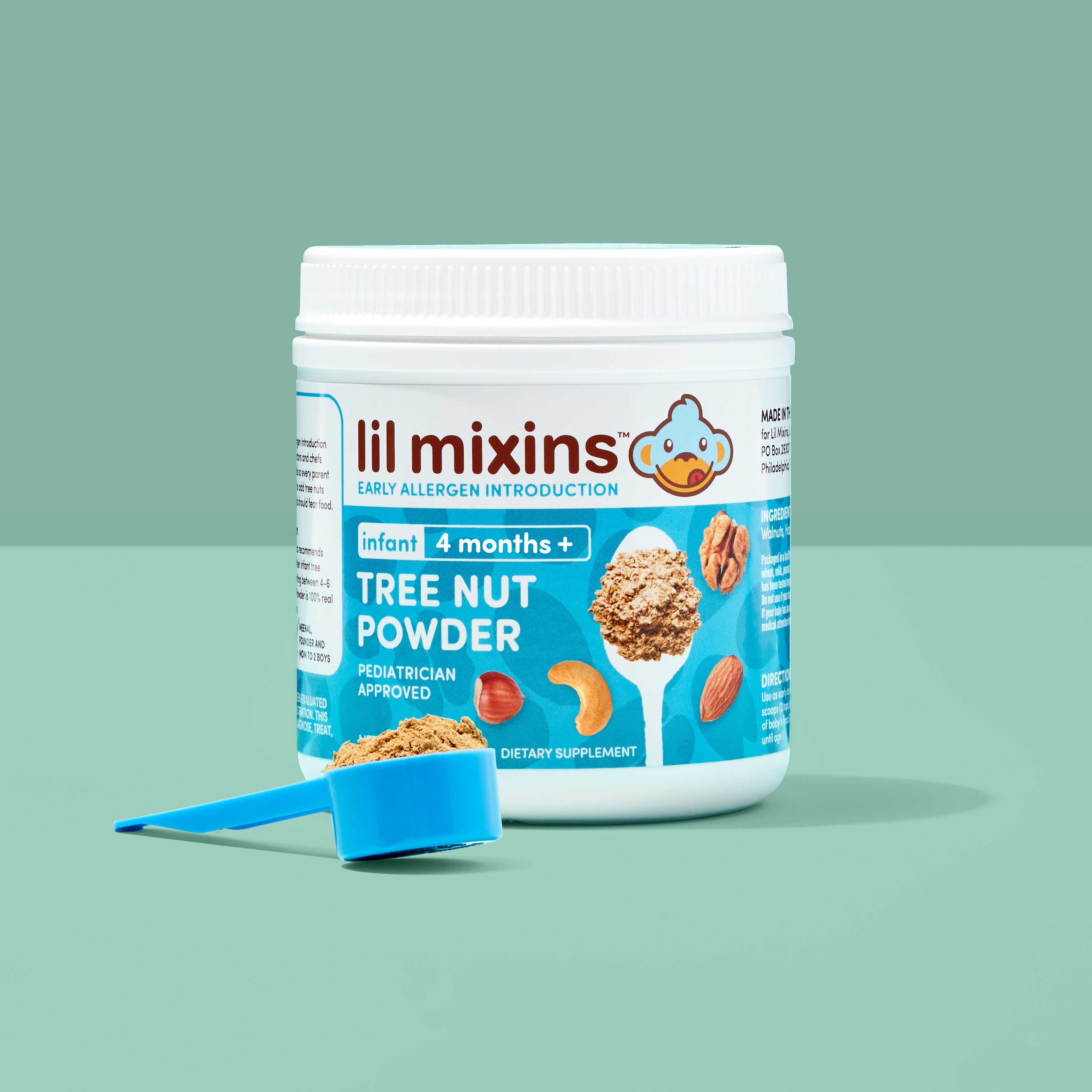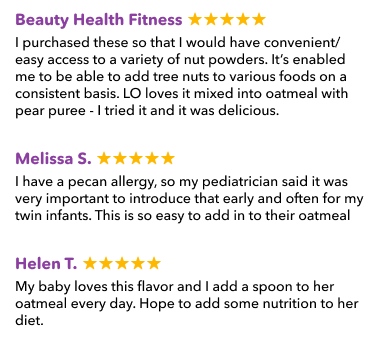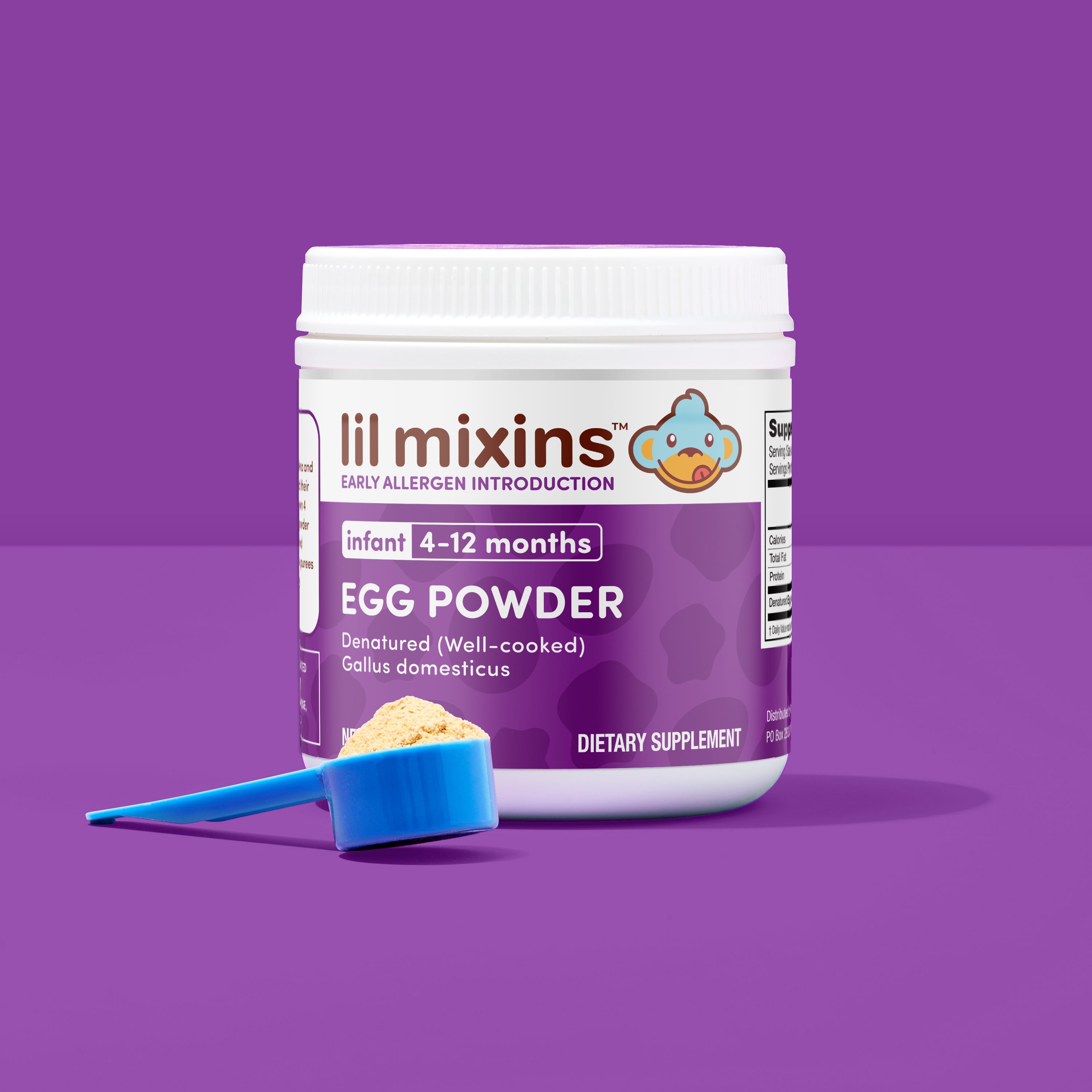What to Know About Your Baby’s Immune System Development Timeline
The infant immune system starts developing in utero, and continues to form over the first 1,000 days. Just like the brain, by age 3, 80% of a baby’s immune system is set in. That’s not a lot of time for a parent to change things, but it’s also a pretty short time during which parents need to be extra careful about what their baby is being exposed to.
In Utero
During pregnancy, a baby uses their mother’s immune system for protection against infections and parasites. Even though a baby doesn’t have it’s own immune system, in some ways, it’s learning from its mother.
We now know that if a mother is exposed to certain chemicals, air pollution, or other toxins during pregnancy, it can teach parts of her baby’s immune system to be overactive. We also know that a mother’s health during pregnancy, including her diet, stress, and sleep patterns, can affect her immune system as much as air pollution.
If a mother’s immune system is too active, it can set a baby up with an overactive immune system too.
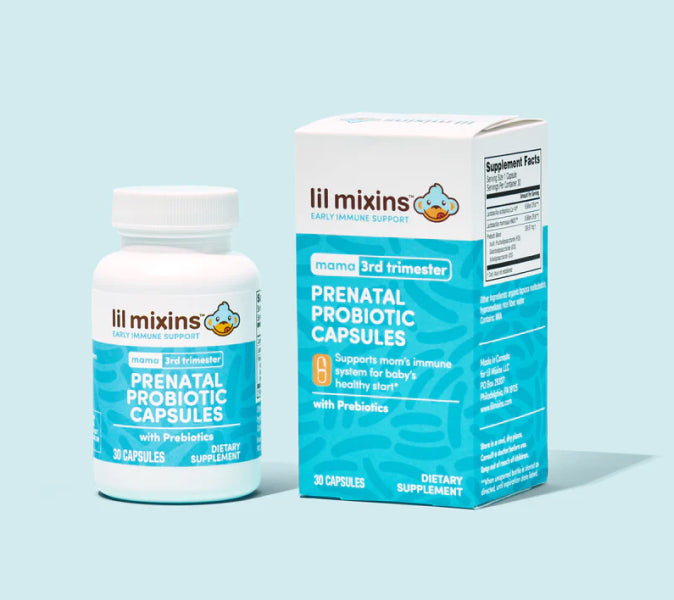
Shop Prenatal Probiotic Capsules One-Month Supply
Early Months
During labor, a baby also gets a starter microbiome from their mother’s birth canal, skin-to-skin contact, and early breast milk (colostrum) that starts to take-over the skin and gut and help regulate the immune system.
Breastfeeding, if possible, is incredibly helpful for healthy immune system development in the early period. For one, babies can get antibodies to fight off viruses directly from their mother’s breast milk. More interestingly, the sugars in breastmilk selectively feed healthy bacteria in the gut, and keep unhealthy bacteria from growing.
For moms and babies who are breastfeeding, growing healthy bacteria takes two parts.
Supplements with healthy bacteria & prebiotics can help mom’s breast milk have more bacteria feeding nutrients.
For baby, supplements with healthy bacteria will make sure the baby's gut has bacteria that thrive on breast milk.
For babies who cannot breastfeed, HMOs (breast milk sugars) and healthy gut bacteria that are not found in formula can be supplemented with the right probiotic.
Multiple studies have shown that babies with healthy gut bacteria have high levels of calming immune cells (Treg) and lower levels of allergy-triggering immune cells.
Six to Twelve Months
Once a baby starts eating solid foods, their immune system begins to rapidly change. One reason for this is that the introduction of food changes the gut bacteria to an adult-like mix, and this affects the immune system.
Another reason is that around this time, a baby starts moving around and interacting with the world. To keep up with all the new exposures from licking the floor, touching toys, and playing with others, a baby’s immune system has to start deciding what is safe, what’s not, and what to fight off.
A baby’s immune system begins developing its own antibodies for viruses a baby encounters. It also increases the number of immune cells for fighting off bacterial infections.
Lastly, in the 6-12 month timeframe is when most food allergies and eczema begin to appear because these are both mistakes in a system designed to fight off parasites.
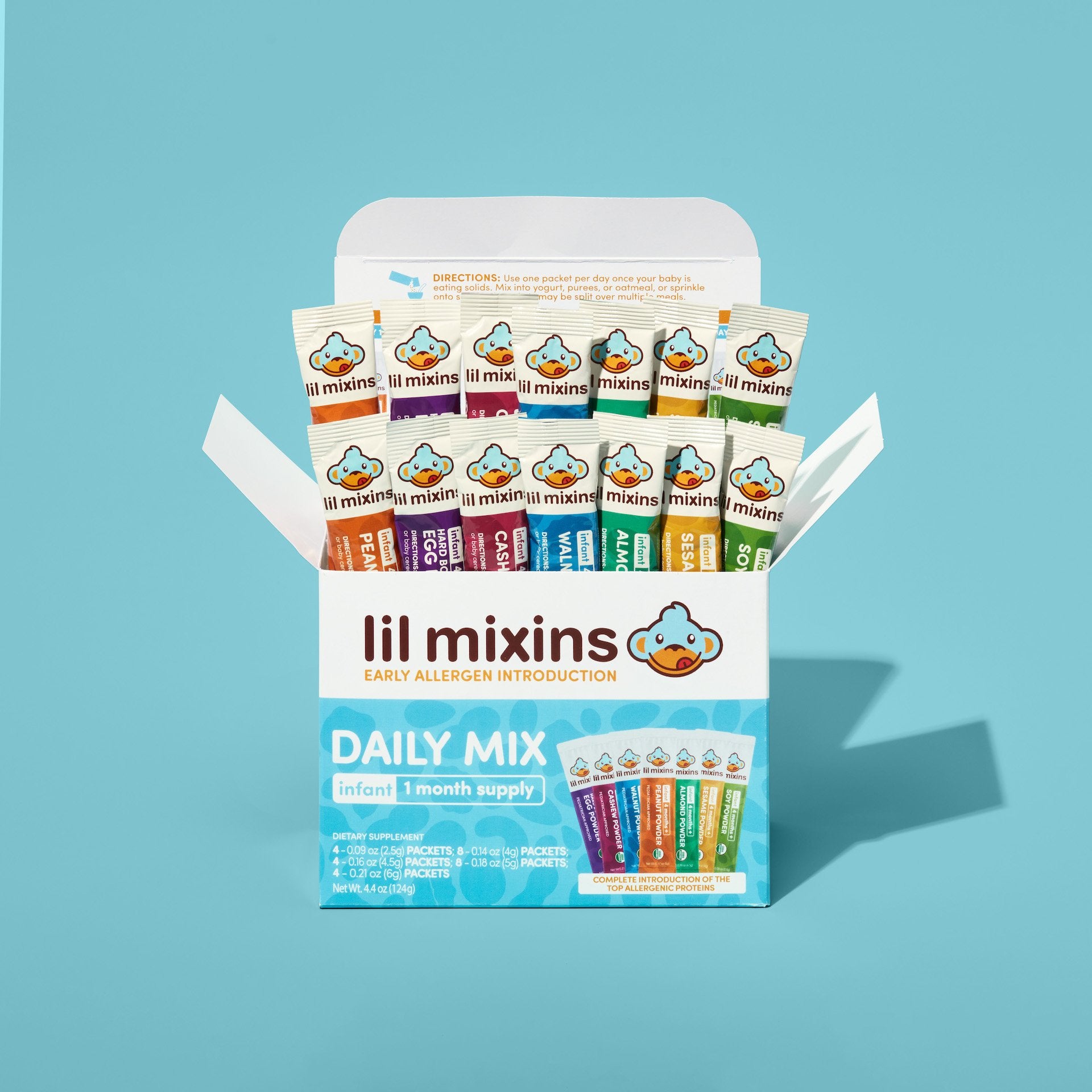
Shop Daily Mix One-Month Supply
One to Three Years Old
Over the toddler years, a child’s immune system will continue to mature both in strength and complexity. For example, doctors are more likely to prescribe antibiotics to a child under 2, because their immune system isn’t as good at fighting infections as a child older than 2.
Similarly, allergic reactions begin to become more severe after age 2 because the immune system is getting stronger.
By age 3, a child's immune system is also getting smarter. It has likely encountered many different kinds of viruses or bacteria and eaten many different kinds of foods. With all this information the immune system can be more efficient at fighting off bad things and smart about ignoring safe things.


